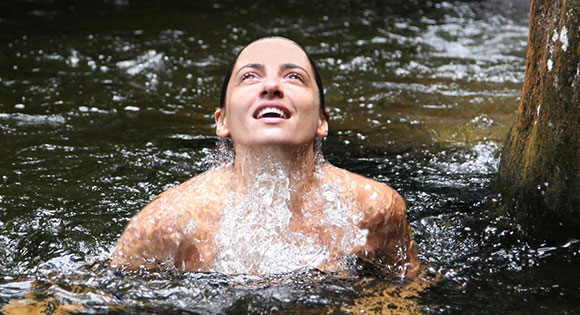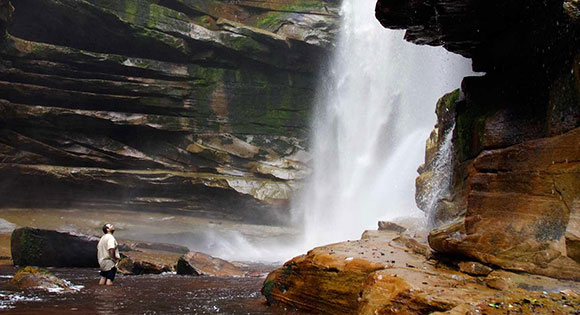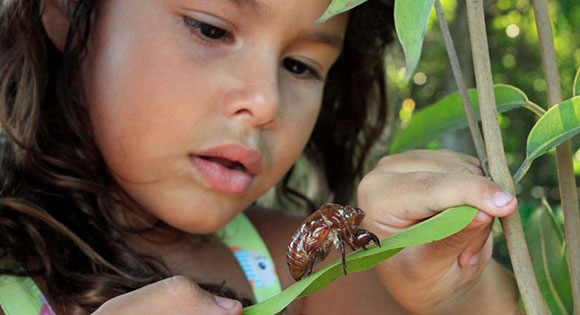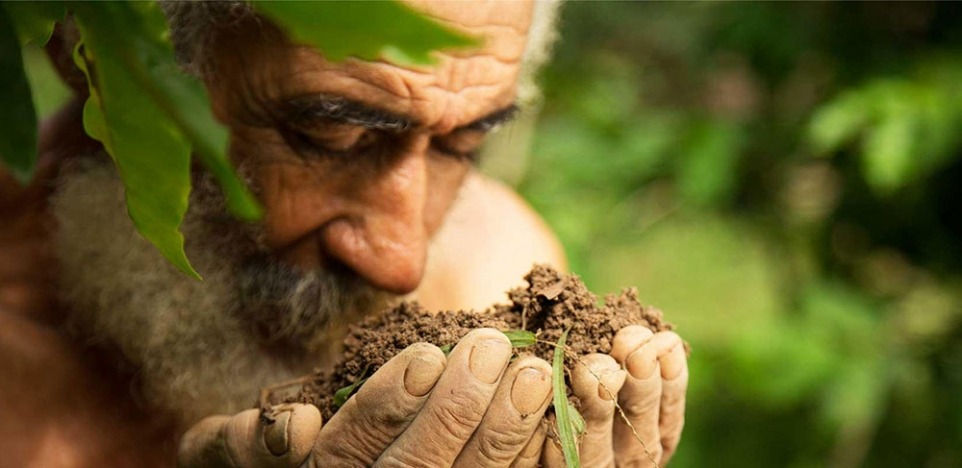"Methinks my own soul must be a bright invisible green."
— Henry David Thoreau
We are living in a time of auspicious revelations and changes in our beliefs, attitudes, and choices. It has dawned upon many of us that we are not the center of the universe and that we were put here not to dominate the natural world but to love it as part of ourselves.

Sylvie Rokab has created a visually stunning, soul-stirring, and timely documentary which will open in New York City on Earth Day, an annual U.S. observation where we honor the natural world and ponder ways to solve the current climate and environmental crisis. Screenings will follow in other cities throughout the U.S. and Canada through June 2016.
The structure of Love Thy Nature is very innovative and thought-provoking. Liam Neeson, the narrator, plays "Sapiens," a character representative of the human race who goes through several stages before being inspired to relish his connections with the Earth and the responsibilities which go along with that intimate relationship.
"Love of wilderness is an expression of loyalty to the earth, the earth which bore us and sustains us, the only home we will ever know."
— Edward Abbey
Three scholars appear on the documentary: Dayna Baumeister, co-founder of The Biomimicry Institute which has done pioneering work in developing cutting edge inventions based on Nature's systems, models, and elements such as the hub of a high-speed train designed from a bird's beak; Brian Swimme, a professor at the California Institute of Integral Studies who shares findings of his work as a cosmologist interested in the 13.7 billion year history of the universe; and Andy Lipkis, founder of Tree People, an organization that has cared for more than two million trees in the Los Angeles region and provided a model for environmental sustainability in urban areas.
"We are distant relatives to the stars and kissing cousins with the oceans, plants, and other creatures of the earth."
— Sallie McFague
Love Thy Nature is not specifically about Green Spirituality, which blends together ecological and mindfulness perspectives. But it does inspire us to re-evaluate our relationship to the Earth and to find ways to honor and protect it. Below we have identified some concepts we identified in the film for discussion by families and small groups.

1. We Are Nature
"I am part of the sun as my eye is part of me."
— D. H. Lawrence
This documentary marvels about the ways we are able to feel our oneness with trees, animals, the sun, the air, water, plants, and much more.
- Which scenes helped you to emotionally connect with the Earth and its many creatures?
- Philosopher Robert Muller has concluded: "Only the unity of all can bring out the well-being of all." This is one of the essential foundations of Green Spirituality. Talk about a scene in Love Thy Nature that triggered your experience of unity.
2. The Joy of Taking Care of the Earth
"Together with the sea, air, sunlight, and other life forms, we take part in a planet-sized living system."
— Elizabeth Roberts
We are part of a complex living system (often called Gaia) that challenges us every day to improve life for all species. It is a give-and–take relationship with the natural world.
- What new gifts from nature have you learned about from the documentary?
- Many spiritual people refer to the Earth as our mother who gives us what we need to survive, grow, and flourish. What have you given back to the Earth in response to all the gifts she has bequeathed to you?
3. Animals & Emotions
"Animals have a range of emotion and distinct personalities. They communicate among themselves and they understand human behavior and language."
— Richard Nelson
Many people pride themselves on the care they give to their pets, considering them part of their families. But farm animals and animals in the wild do not get the same attention or respect.
- In your experience, what animals have convinced you that they have emotions and act on them regularly?
- Given this understanding of animals, such practices as factory farms and the torture of animals in the cosmetics and pharmaceutical industries is intolerable. What can you do to stop these practices?

4. Shuck the Idea of Dominion Over the Earth
"Whales and redwoods both make us feel small and I think that's an important experience for humans to have at the hands of nature. We need to recognize that we are not the stars of the show. We're just another pretty face, just one species among millions more."
— Roger Payne
Unfortunately, many religious people have taken passages in the Bible to mean that they have been given dominion over all the Earth and its creatures. This has been interpreted as giving us the right to ravage and savage the natural world for anything we need, no matter what the consequences.
- Make a list of human abuses of the Earth and its creatures.
- What would it take to change the paradigm from dominion over the nature to stewardship or trusteeship as mentioned on the documentary?
5. Trees Give Glory to God
"A tree gives glory to God by being a tree . . . This particular tree will give glory to God by spreading out its roots in the earth and raising its branches into the air and light in a way that no other tree before or after it ever did or will do."
— Thomas Merton
Love Thy Nature includes several scenes about the contributions of trees to the well-being of the environment.
- Sum up what you have learned about trees from this program.
- Today, speak to a tree that gets your attention, engages your senses, and sparks your appreciation for the good Earth. What do you want to tell it?
6. Healing People & Healing the Planet
"Healing people and healing the planet are part of the same enterprise. People have a deep psychological need for contact with nature; the planet needs the reverential care of humans."
— Theodore Roszak
Studies show that today's children are spending far less time in nature than did previous generations. This shift is affecting how much energy they are likely to put into protecting nature.
- What do you think should be done to motivate kids who are so involved inside with their technological toys that they have little need to go outdoors and experience nature?
- What spiritual practices have you found to convey your "reverential care of humans"?
7. Nature as Consummate Teacher
"There is a way that nature speaks, that land speaks. Most of the time we are simply not patient enough, quiet enough, to pay attention to the story, to be attentive."
— Linda Hogan
Indigenous peoples have proved themselves to be curious students of the natural world. They see nature as a spiritual teacher with many things to be teach them.
- Share your reactions to the segment of the documentary on the science of Biomimicry and the ways in which scientists and others are learning from Nature.
- What have you learned from Love Thy Nature? What have been your most valuable lessons from the natural world?
